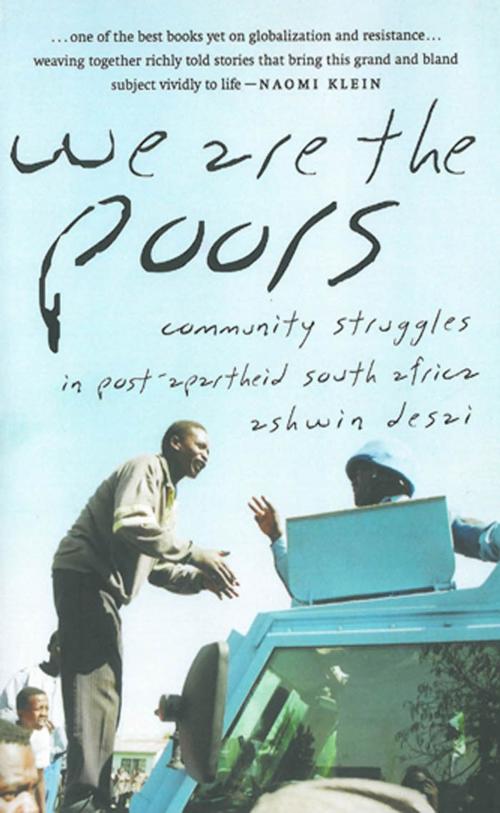| Author: | Ashwin Desai | ISBN: | 9781583675281 |
| Publisher: | Monthly Review Press | Publication: | April 1, 2002 |
| Imprint: | Monthly Review Press | Language: | English |
| Author: | Ashwin Desai |
| ISBN: | 9781583675281 |
| Publisher: | Monthly Review Press |
| Publication: | April 1, 2002 |
| Imprint: | Monthly Review Press |
| Language: | English |
When Nelson Mandela was elected president of South Africa in 1994, freedom-loving people around the world hailed a victory over racial domination, injustice and inequality. The end of apartheid did not change the basic conditions of life for the majority of oppressed South Africans, however. Material inequality has deepened and new forms of resistance have emerged in commnities that have discovered a common oppression and solidarty and forged new and dynamic political identities.
Desai's book follows the growth of the most unexpected of these community movements, describing from the inside the process through which the downtrodden regain their dignity and defend the most basic conditions of life. His book begins with one specific community, with local government enforcing cut-offs of water and electricity, and evicting families from their houses whose breadwinners have lost their jobs. As the Chatsworth community begins to organize and discover leaders among its ranks, so their example spreads to other communities in Durban and the KwaZulu-Natal region, and their struggles build links with those in other parts of the new South Africa.
We Are the Poors was a major event in the life of the South African Left when the first edition was published there in 2000. This new edition follows the ongoing course of events to the present.
When Nelson Mandela was elected president of South Africa in 1994, freedom-loving people around the world hailed a victory over racial domination, injustice and inequality. The end of apartheid did not change the basic conditions of life for the majority of oppressed South Africans, however. Material inequality has deepened and new forms of resistance have emerged in commnities that have discovered a common oppression and solidarty and forged new and dynamic political identities.
Desai's book follows the growth of the most unexpected of these community movements, describing from the inside the process through which the downtrodden regain their dignity and defend the most basic conditions of life. His book begins with one specific community, with local government enforcing cut-offs of water and electricity, and evicting families from their houses whose breadwinners have lost their jobs. As the Chatsworth community begins to organize and discover leaders among its ranks, so their example spreads to other communities in Durban and the KwaZulu-Natal region, and their struggles build links with those in other parts of the new South Africa.
We Are the Poors was a major event in the life of the South African Left when the first edition was published there in 2000. This new edition follows the ongoing course of events to the present.















